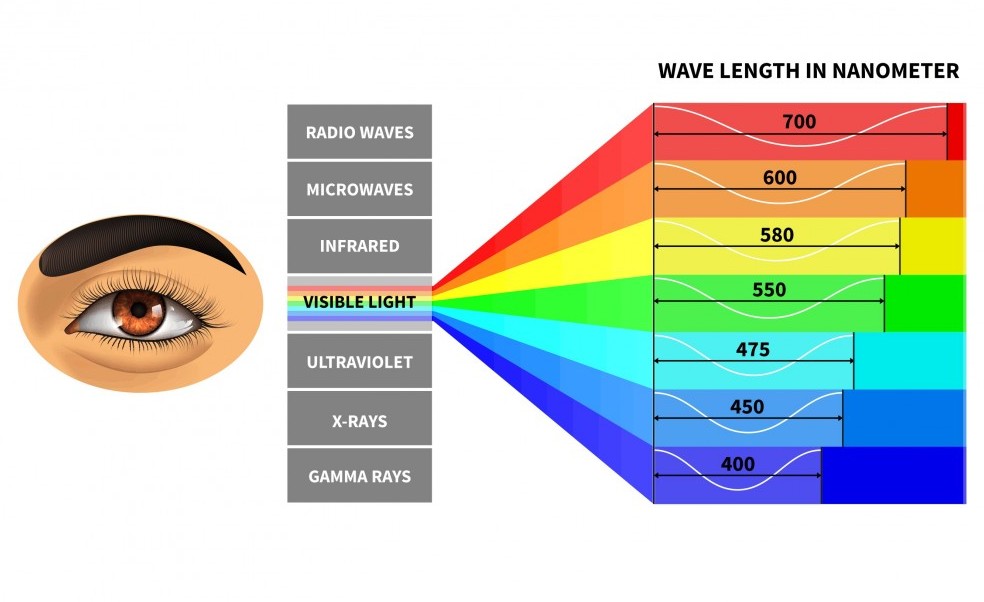
Understanding Blue Light: Why You Need Blue Light Blocking Glasses
In our modern, technology-driven world, blue light is everywhere. From smartphones and tablets to computer screens and LED lights, our daily exposure to blue light has increased significantly. While blue light has its benefits, such as boosting alertness and improving mood, excessive exposure—especially in the evening—can disrupt our sleep and negatively affect our eye health. In this post, we’ll explore what blue light is, its effects on our bodies, and why investing in blue light blocking glasses can be a game-changer for your well-being.
What is Blue Light?
Blue light is part of the visible light spectrum, with a wavelength of about 380 to 500 nanometers. It is emitted by digital devices and artificial lighting, and it plays a crucial role in regulating our circadian rhythms—the natural sleep-wake cycles our bodies follow. While exposure to blue light during the day can help enhance mood and cognitive function, too much exposure at night can interfere with our ability to fall asleep (1).

The Effects of Blue Light on Sleep
One of the most significant concerns regarding blue light exposure is its impact on sleep quality. When we use our devices in the evening, the blue light emitted can suppress the production of melatonin, the hormone responsible for regulating sleep. This suppression can lead to difficulty falling asleep and reduced overall sleep quality, leaving us feeling groggy and unfocused the next day (2).
Eye Strain and Discomfort
In addition to its effects on sleep, prolonged exposure to blue light can contribute to digital eye strain, also known as computer vision syndrome. Symptoms include:
- Dry or irritated eyes
- Blurred vision
- Headaches
- Difficulty focusing (3)
These symptoms can become more pronounced the longer we spend in front of screens, making blue light blocking glasses an essential tool for anyone who spends significant time on digital devices.
Why You Need Blue Light Blocking Glasses
Investing in blue light blocking glasses can be a simple yet effective way to protect your eyes and improve your sleep. Here’s how they can benefit you:
1. Reduced Eye Strain: Blue light blocking glasses filter out a portion of blue light, which can help reduce discomfort and strain during extended screen time (4).
2. Improved Sleep Quality: By minimizing blue light exposure in the evening, these glasses can help maintain healthy melatonin levels, making it easier to fall asleep and stay asleep (5).
3. Enhanced Focus and Productivity: By reducing eye fatigue and strain, blue light blocking glasses can help you stay focused and productive during long hours of work or study (6).
4. Style Meets Functionality: With a variety of stylish frames available, you don’t have to sacrifice aesthetics for eye protection. You can find a pair that fits your style and your needs.

Tips for Choosing the Right Pair
When selecting blue light blocking glasses, consider the following:
Lens Type: Look for glasses that specifically mention blue light filtering capabilities. Some lenses are designed for general use, while others are tailored for extended screen time (7).
Frame Style: Choose a frame that fits your face comfortably and suits your personal style. You'll be more likely to wear them consistently if you love how they look.
Coating Options: Some glasses come with anti-reflective coatings to reduce glare, making them even more effective for screen use (8).
Conclusion
In a world filled with screens, blue light blocking glasses are a practical solution for protecting your eyes and enhancing your well-being. At Solace, we offer two specialized pairs of blue light blocking glasses: one for daytime use and another for nighttime wear, helping you improve your daily routine and sleep quality. Investing in these glasses means investing in your eye health. Your eyes—and your sleep—will thank you!
Click here to shop our glasses!
References
- Harvard Health Publishing. "Blue Light Has a Dark Side." Harvard Health.
- National Sleep Foundation. "How Blue Light Affects Your Sleep." Sleep Foundation.
- American Optometric Association. "Computer Vision Syndrome." AOA.
- B. He, C. Yang, and J. Wang. "Effects of Blue Light Blocking Glasses on Visual Fatigue." Optometry and Vision Science, 2019.
- Chang, A. M., et al. "Evening blue light exposure decreases melatonin and disrupts sleep in humans." Journal of Clinical Endocrinology & Metabolism, 2015.
- Wang, Y., et al. "Effects of blue light on cognitive performance." International Journal of Environmental Research and Public Health, 2020.
- American Academy of Ophthalmology. "Do Blue Light Blocking Glasses Work?" AAO.
- "Blue Light Glasses: Do They Really Work?" Healthline, 2021.


